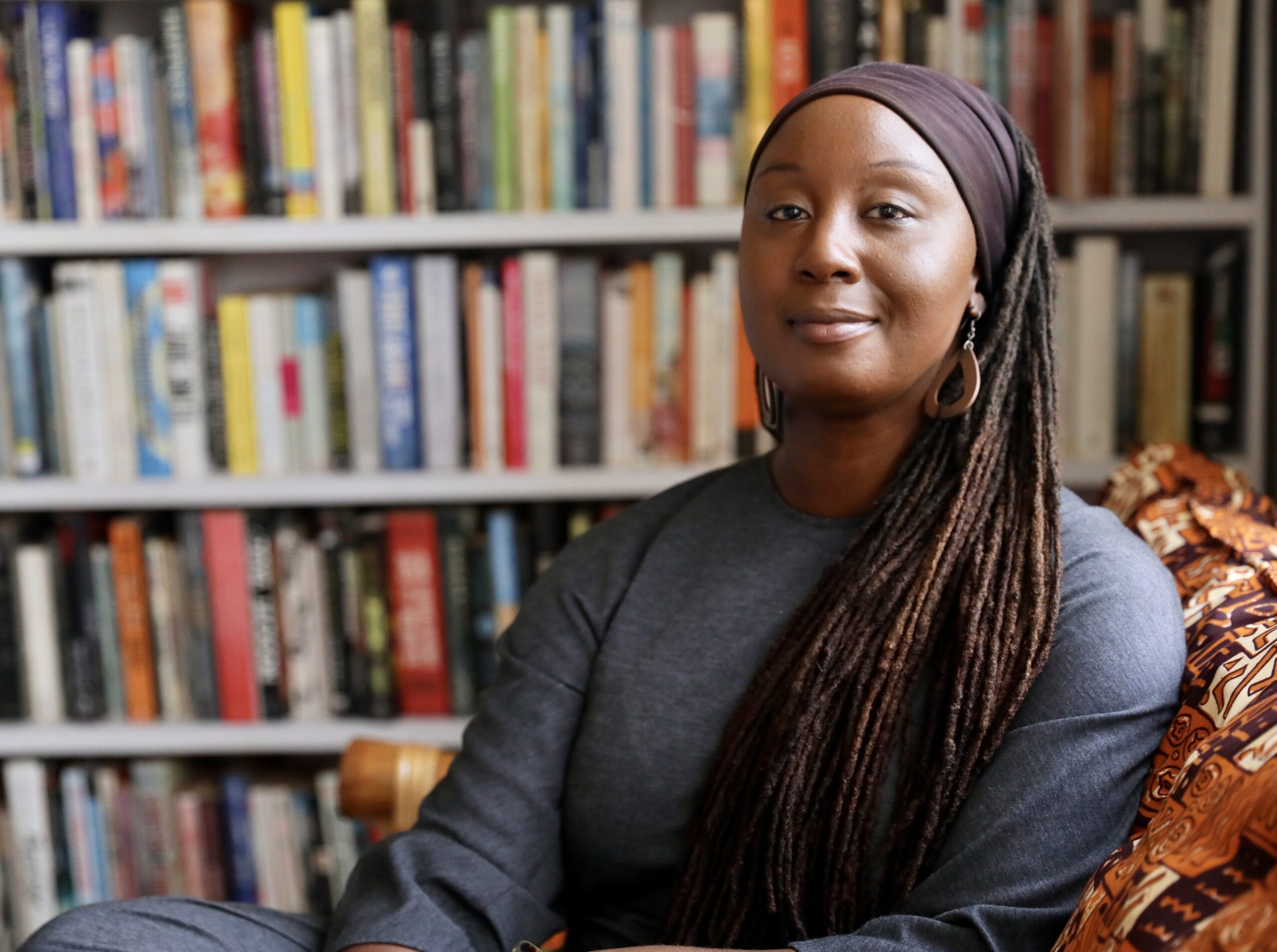
It is with great honor that I present Sylvia Arthur as the 2023 Brittle Paper African Literary Person of the Year for her outstanding work as the founder of the Library of Africa and the African Diaspora (LOATAD) in Accra, Ghana. She is the 9th honoree of the award. Nnedi Okorafor was the first to receive the award in 2015 and since then it has gone to many outstanding writers and literary industry leaders including Ellah Wakatama, Kwame Dawes, Lola Shoneyin, and others.
LOATAD is a prominent cultural organization. It’s been featured on the BBC, Al Jazeera, France 24, Le Monde, among others. It hosts a steady stream of visitors from local communities as well as all over the world. They come for the 4000+ books but also for exhibitions, to see a movie, to enjoy live music and poetry readings, and if they are writers, to participate in one of the library’s coveted writing residencies. Arthur fosters one of the most vibrant and global meeting spaces for Black people, and her selection as the literary person of the year is a celebration of the impact of her work and her vision in creating institutional spaces with significant infrastructural impact on the disseminating of African literature and culture.
LOATAD, formerly known as Libreria Ghana, began in 2017 with 1300 books from Arthur’s personal collection. This collection has since expanded, thanks to carefully curated acquisitions and contributions from supporters, including an extensive collection donated by American literature professor Ian Munro and facilitated by Brittle Paper.
LOATAD is the perfect culmination of a life built on a deep appreciation of politics, social justice and the importance of knowledge making. Arthur was born in London to Ghanaian parents and did not visit Ghana until she was in her early 20s. In the course of finishing university, receiving a degree in philosophy, a postgraduate diploma in Journalism, and a Master’s in narrative nonfiction writing, she got the idea to establish a library in one of Africa’s most beloved cities, Accra.
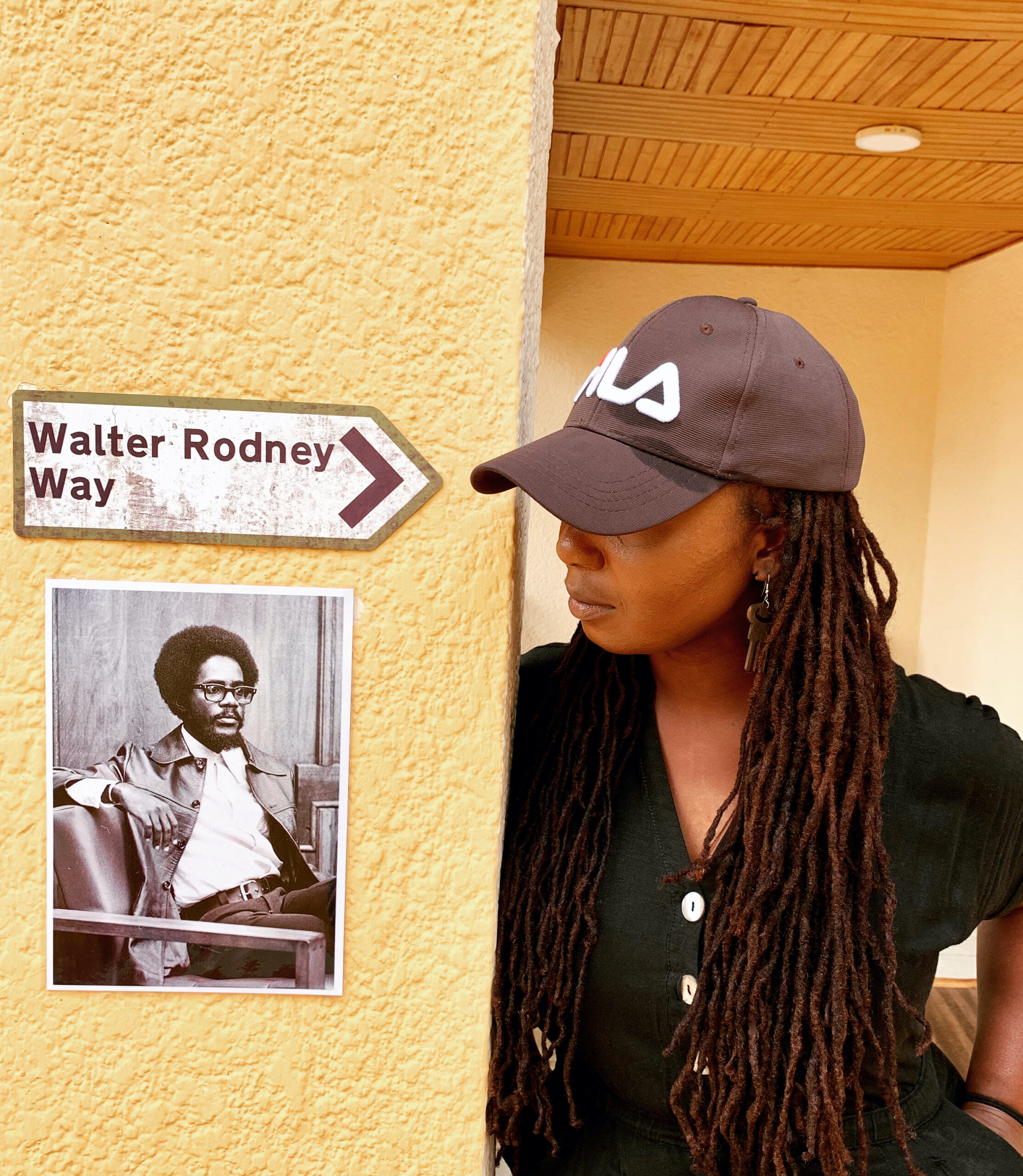
Being a book collector is a kind of enchantment, a deep love for books as things that hold memories of the self, but being the founder of a library is dedication to knowledge as a collective project. Arthur embodies these two ideals. LOATAD comes from a deeply personal relationship to books that expanded into a deeply political investment in global Black worlds, histories, and ideas. Arthur loved books from a young age, influenced by her father who was interested in many forms of media and collected vinyl records of various music genres. Although she liked music, she was more drawn to reading and started collecting books. In 2010, when she moved to Brussels. It was the first time she’d lived outside the UK. Feeling alone in a new city, she found comfort in reading books:
Brussels is a transient city due to the presence of the European Union and NATO etc. It attracts workers from across Europe and the world who leave to go to their next posting or return to their home country at a moment’s notice. Many of them are readers and, those who weren’t in a position to take all their books with them, would give them to a legendary secondhand bookstore called Pêle-Mêle, where I’d spend my Saturday mornings buying them all up, especially those by Black/African writers.
The collection grew to a point where she began shipping books to her mother’s house in Ghana:
“When I would visit, I’d think that it was such a waste that there were all these books in a room just being there not being read. Especially since I knew how difficult it was to access contemporary, culturally-relevant literature by African and Diaspora writers in Ghana.”
It would take another 6 years for this realization to flower into an actual library. The library opened in 2017. After several changes in location, it is currently on a property that houses a library, a museum, a publisher, and home for writer and artists. They have hosted almost 40 writers from Africa and the Diaspora for fully-funded residencies, as well as self-funded writers who come to take advantage of the calm and immersive space of the library while enjoying Accra’s bustling scene.
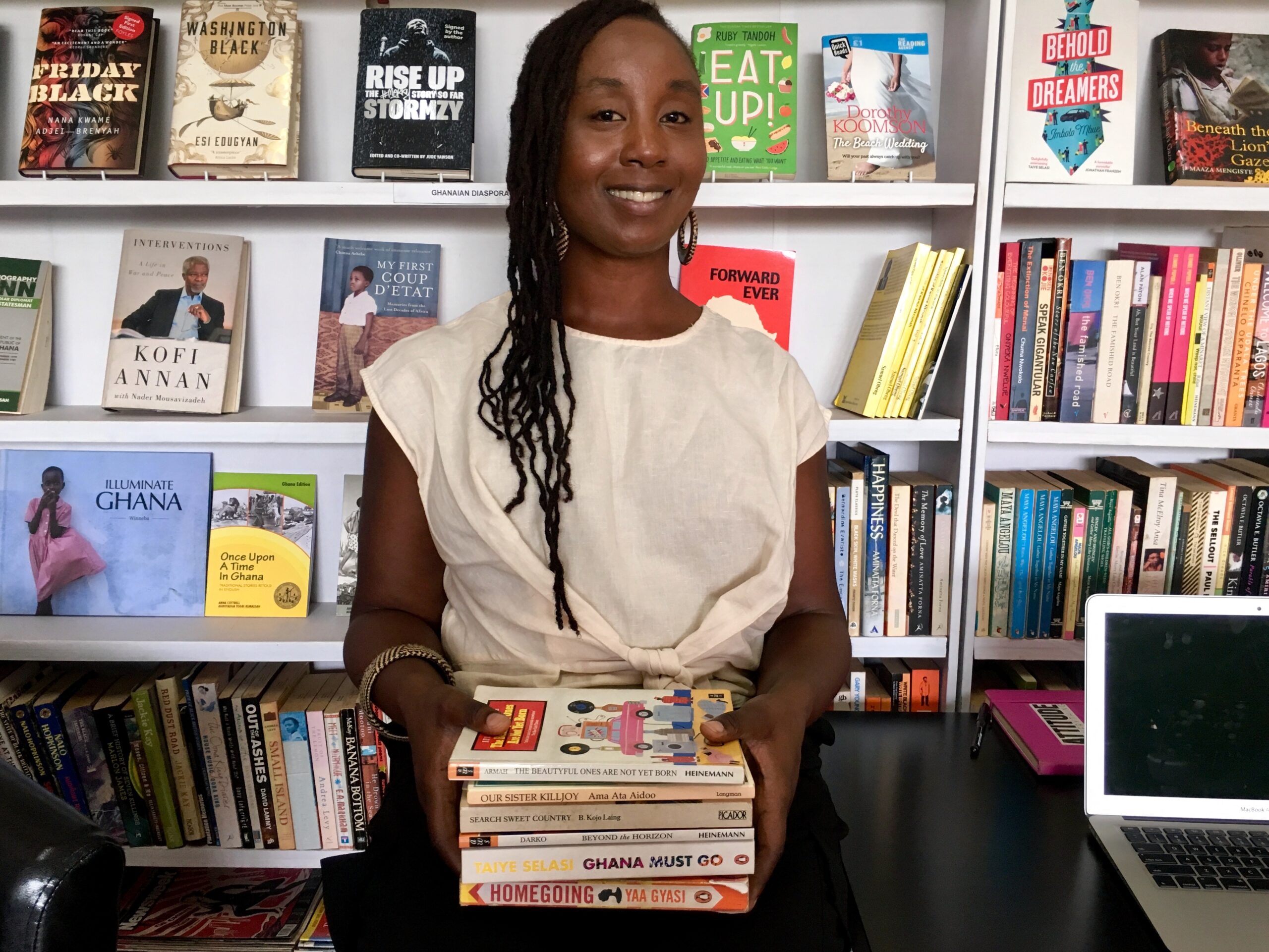
The residences are cornerstones of LOATAD’s impact on African literary culture. Residences are not easy programs to run. But Arthur explained that she had benefited from top writing residences in the west – the likes of Hedgebrook in Washington State and the Santa Fe Art Institute in New Mexico. She said that these residences gave writers the space and permission to lean into their creative process, and lamented the fact that African writers have to go outside the continent to get such an affirming and productive experience. Through its residences, LOATAD is building capacity and developing the talent that feeds the rapid growth in African literary markets.
By allowing African writers to be in an environment where they are surrounded by the work of their literary forebears, you immediately change their perspective. By reflecting the breadth and depth of Black writing over the centuries we’re showing writers and potential writers in a very empirical way that they are part of a lineage. You cannot deny the impact of African literature to the world when you’re confronted by it in such a vast and material way.
The thing with libraries is that they breed more libraries. LOATAD has helped set up three school and community libraries that service thousands of students and residents yearly. One of their most intriguing projects is a library housed in an eco-friendly mud building located in Nsutam in the Eastern Region of Ghana. The library was built through a partnership between Archifair, an Austrian NGO invested in sustainability and HIVE Earth, a Ghanaian construction company that works with mud. LOATAD is set to run the library, alongside local members of the community.
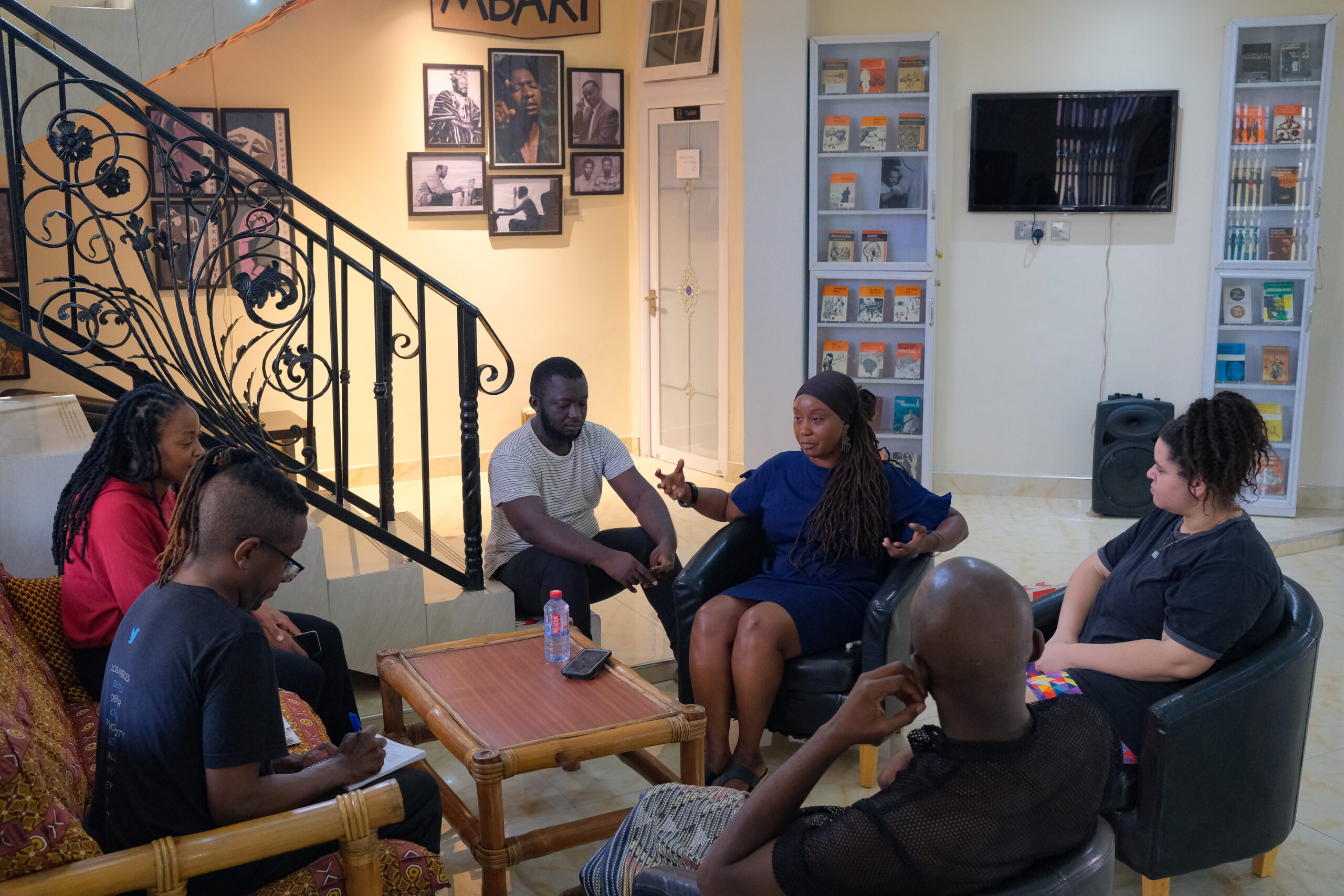
What ties LOATAD’s different projects is a deep investment in knowledge-making. Arthur is a keen observer of culture and understands that knowledge is the gold of cultural power. “The work of the library is built on three pillars,” she notes, “knowledge production, knowledge preservation, and knowledge dissemination.” Knowledge is not just information. Knowledge is the repositories of images that underlie our sense of self and that animates our actions. It is how the chaos of experiences becomes translated into ideas and actions on which collective life thrives:
Our knowledge production work is as fundamental to who we are and what we do as our knowledge sharing work. For too long, Africans have been seen as consumers of knowledge rather than producers. We see our role as countering the epistemic erasure perpetrated against Africa over centuries by collecting, highlighting, and sharing the work of African and Diaspora authors from as early as possible to the present day, giving it primacy, and complementing that by producing our own work and providing the time and space for contemporary writers to do theirs and carry that legacy forward.
This kind of knowledge work is not easy. It requires a lot of passion but also money and a whole lot of labor. Over the years, Arthur paid for LOATAD with her own personal funds until key partnerships and external funding sources began to take a bit of the weight off. Seeing the scale of the project: the community outreach, the events, the facility, the writers residency, you’d think that she has a massive staff. The whole operation is run by a team of two and some interns. There is Seth Avusuglo, who handles everything having to do with running the facilities while Arthur deals with everything related to programming, events, sourcing for funding, as well as the administrative needs. It takes a lot of resourcefulness to run an organization that is doing so much on so little in a place where entrepreneurial efforts face a lot of hardship. As Arthur is quick to point out: “since the beginning, we’ve punched above our weight and done things that organizations with much more funding and resources don’t even do.” But I want to use this opportunity to encourage folks to support Africa-based cultural organizations. Instead of simply praising resourcefulness and moving on, let us praise resourcefulness and also donate cash and other kinds of support that will make a difference in the lives of those running these kinds of projects.
When we talk about African literature, we focus on the connection between readers and markets and almost entirely omit the role of libraries. This could be because, with the move to digital culture, many people think that libraries are out of date. There is also this idea that the institution of libraries died in Africa in the 1990s and so it is in the margins of literary culture. LOATAD is challenging this misconception by demonstrating how libraries can serve multiple functions in the community, how they can serve as hubs where the global and the local intersect. LOATAD draws Black diaspora communities looking to reconnect with their African roots and local communities looking for a space to experience culture. LOATAD shows that libraries are not just about books and the content they hold. It is a space of meeting, of communion, of performance, of teaching, and imagination. Libraries are communal spaces that hold so much more than books. Arthur says that they have become good at “stimulating curiosity” as the driving force of cultural experience. They are challenging the perception that libraries are for reclusive scholars by presenting it as a space to simply experience culture:
Once they got into the space and were surrounded by the books and the images of the writers on the wall and the video playing in the background of Kofi Awoonor, for example, reading one of his poems in Ewe (a local Ghanaian language), then they’re completely intrigued and want to know more.
LOATAD is a powerful institution making space for knowledge curation and community organizing, but Arthur insists that, at the end of the day, LOATAD is
more than any of those things…it’s a feeling, an experience. When people enter the library, you can see something start to transform in them, like they’ve been transported to another time and place where they feel affirmed, validated, and part of a continuum, a history. It’s spiritual, almost. They’re in the presence of their (literary) ancestors and that’s affirming. It’s about pride in our heritage and our existence as intellectual beings whose contributions to the world, though suppressed, are made visible, made real through the library.
It is one thing to know that African literature is a millennia-spanning literature that cuts across a vast continent. It also feels good to be in the presence of literary texts that bear witness to the riches of our literary traditions. For the visitor as well as the writers-in-residence, LOATAD is a space where African literature becomes deeply and beautifully present and personal.
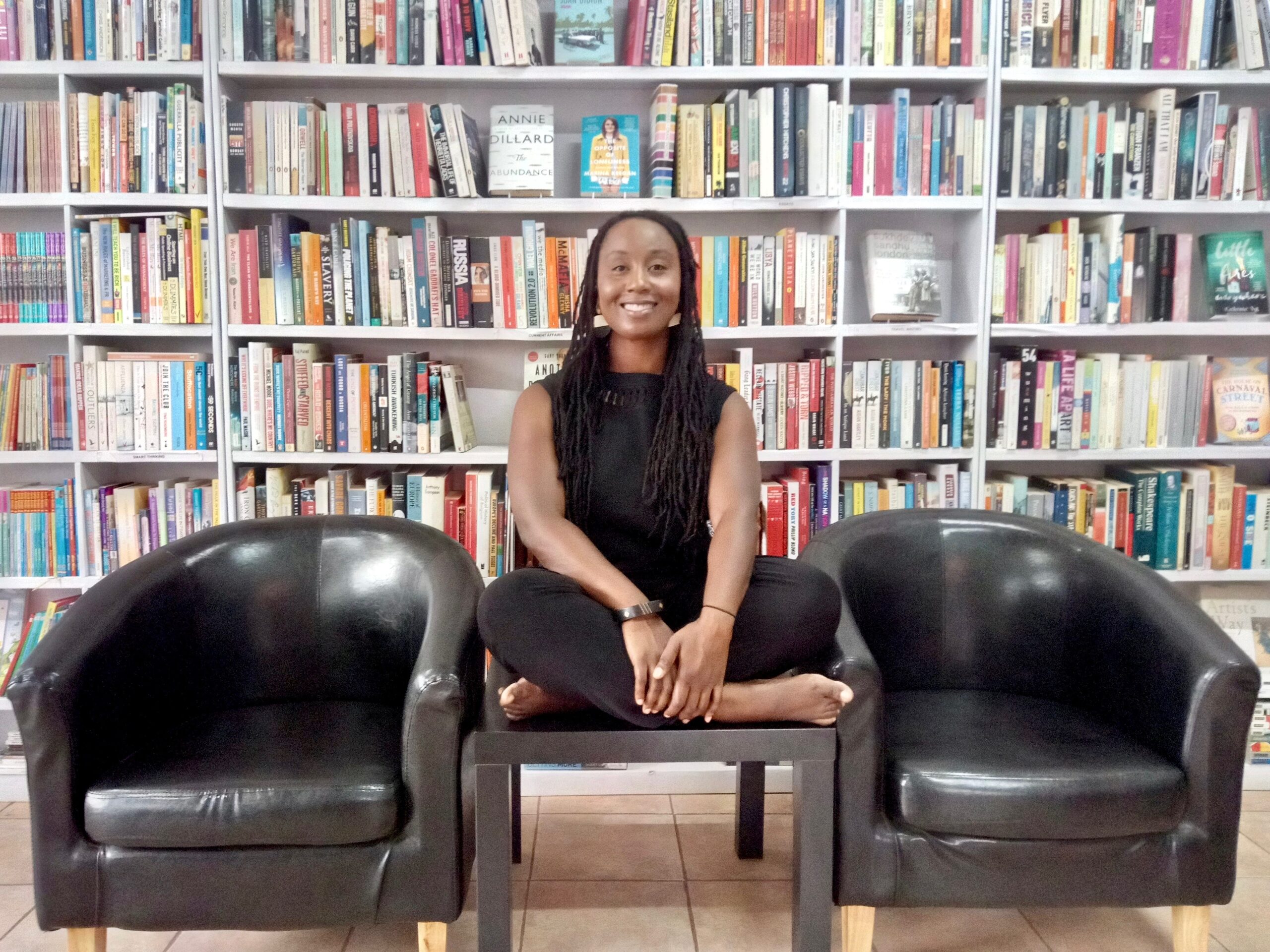
I want to end with remarks about Arthur by Ghanaian author and publisher Nii Ayikwei Parkes who is moved by Arthur’s determination:
What Sylvia has achieved in six years…is nothing short of extraordinary. Apart from the thousands of readers who get access to book by writers of Africa and its diaspora, more than 50 creatives have benefitted from the library as fellows and residents, creating groundbreaking work and forming enduring networks which will produce their own cultural treasures. All of this has been achieved, in the midst of a forced migration of the library, a pandemic and the unpredictable gymnastics of Ghana’s economy. It takes a person with grit, vision, determination and an unbridled love for literature to accomplish that. Sylvia is all of those things and more, because she is powered by the soul of a pure artist. I can’t think of anyone more deserving of this year’s award.
Congrats Arthur! Keep up the good work.









COMMENTS -
Reader Interactions